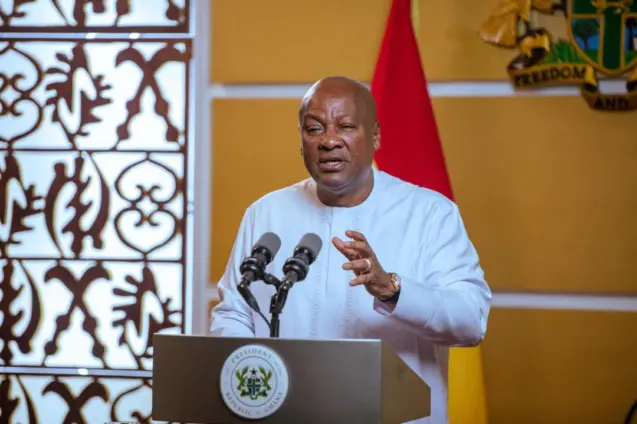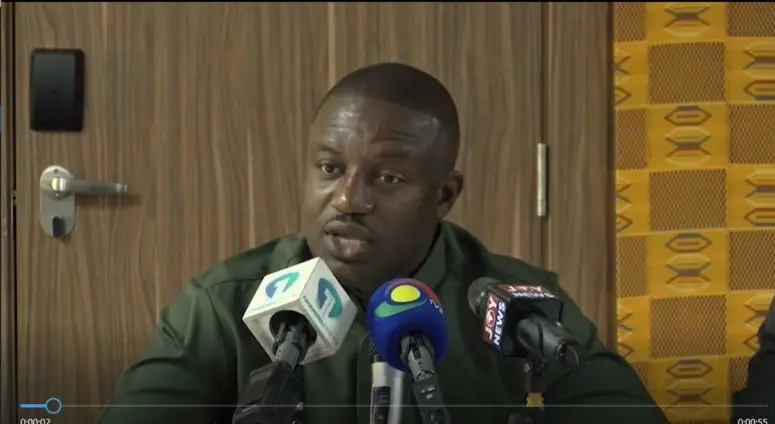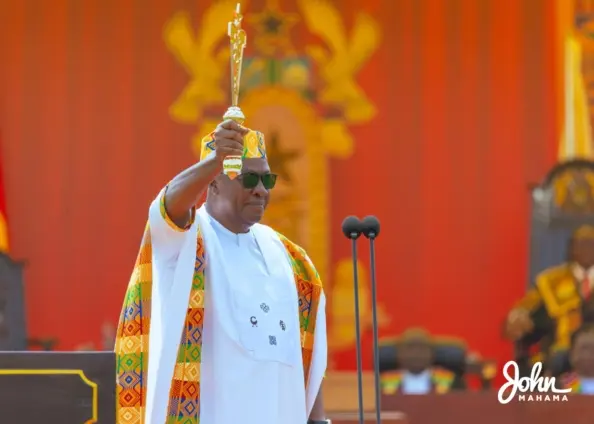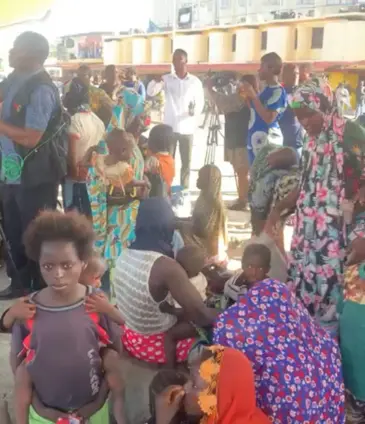The stench of refuse often hangs heavy in the air of Accra, a constant reminder of the sanitation challenges plaguing Ghana’s capital. With each heavy downpour, choked drains overflow, turning streets into rivers and homes into islands. In response to this persistent crisis, President John Mahama has issued a stark warning: MMDCEs cleanliness is now a matter of job security. This directive, announced during a recent Thank You Tour, marks a pivotal shift in the government’s approach to local governance and urban sanitation, potentially ushering in an era of heightened accountability—but also raising critical questions about feasibility and sustained commitment.
“Cleanliness will become one of the key performance indicators for measuring the performance of MMDCEs and will determine whether they will remain in office or are removed,” President Mahama declared, setting a new and unambiguous standard for Metropolitan, Municipal, and District Chief Executives across the country. This statement, delivered during his tour of Greater Accra, underscores the seriousness with which the government now views the sanitation crisis and its impact on public health and safety.
Accra’s vulnerability to flooding has become an annual ordeal, exacerbated by a combination of factors that President Mahama himself acknowledged: poor drainage infrastructure, the proliferation of unregulated development obstructing waterways, and the increasingly evident effects of climate change. These elements converge to create an “unacceptable situation,” in the President’s words, one demanding immediate and comprehensive action.
The focus on MMDCEs cleanliness isn’t just about aesthetics; it’s intrinsically linked to broader flood mitigation strategies. The government has initiated a multi-pronged approach, spearheaded by an inter-agency task force, to address the root causes of the recurrent flooding. This includes the desilting of major drains, a critical yet often overlooked aspect of urban maintenance. Beyond simply clearing debris, the task force is also undertaking the reengineering of waterways to improve their flow capacity, a long-term solution aimed at preventing future blockages. Recognizing that infrastructure alone cannot solve the problem, the government is also focusing on relocating structures that have been illegally erected in waterways, a politically sensitive but necessary step to restore the natural drainage systems.
Enforcement of building regulations is another key component of this strategy, aimed at preventing further encroachment on waterways and ensuring that new construction adheres to proper standards. The government is paying particular attention to the Odaw Basin and the Kaneshie-Mallam corridor, areas that have historically been hotspots for flooding due to their complex drainage patterns and dense populations. However, progress on critical projects, such as those under the World Bank-funded Greater Accra Resilient and Integrated Development (GARID) Programme, has been hampered by delays. President Mahama expressed his concern over these setbacks and urged residents to exercise caution, a tacit acknowledgment that the city remains vulnerable as the rainy season approaches.
In a move designed to empower local assemblies and enhance their capacity to address sanitation challenges, the government has also decentralized the sanitation budget. Eighty percent of the District Assemblies Common Fund revenues will now be directed to MMDAs, providing them with increased financial resources to implement local development and sanitation programs. This decision reflects a broader commitment to fiscal decentralization, with an upcoming Cabinet meeting scheduled to discuss the full decentralization of the sanitation budget. The goal is to make each district fully responsible for its own cleanliness, fostering a sense of ownership and accountability at the local level.
President Mahama envisions a future where Accra is not only clean but also resilient to the impacts of climate change. To that end, the government is integrating the Greater Accra Flood Master Control Plan into the national climate resilience strategy, ensuring that urban development is aligned with environmental sustainability. “Accra deserves a clean and resilient environment…,” President Mahama stated, encapsulating the long-term vision driving these initiatives. The directive that MMDCEs cleanliness will determine their tenure is not merely a threat; it is a call to action, a challenge to local leaders to prioritize sanitation and build a more sustainable future for Ghana’s capital.
President Mahama’s directive, combined with strategic financial empowerment and long-term planning, represents a potentially transformative approach to Accra’s sanitation crisis. The effectiveness of these measures, however, will hinge on the commitment of MMDCEs to take responsibility for cleanliness, consistent enforcement of regulations, and active community involvement. While this policy marks a significant step towards a cleaner, more resilient Accra, its ultimate success will depend on sustained effort and a collective determination to overcome the challenges that have plagued the city for far too long.
Image Source: MYJOYONLINE






















